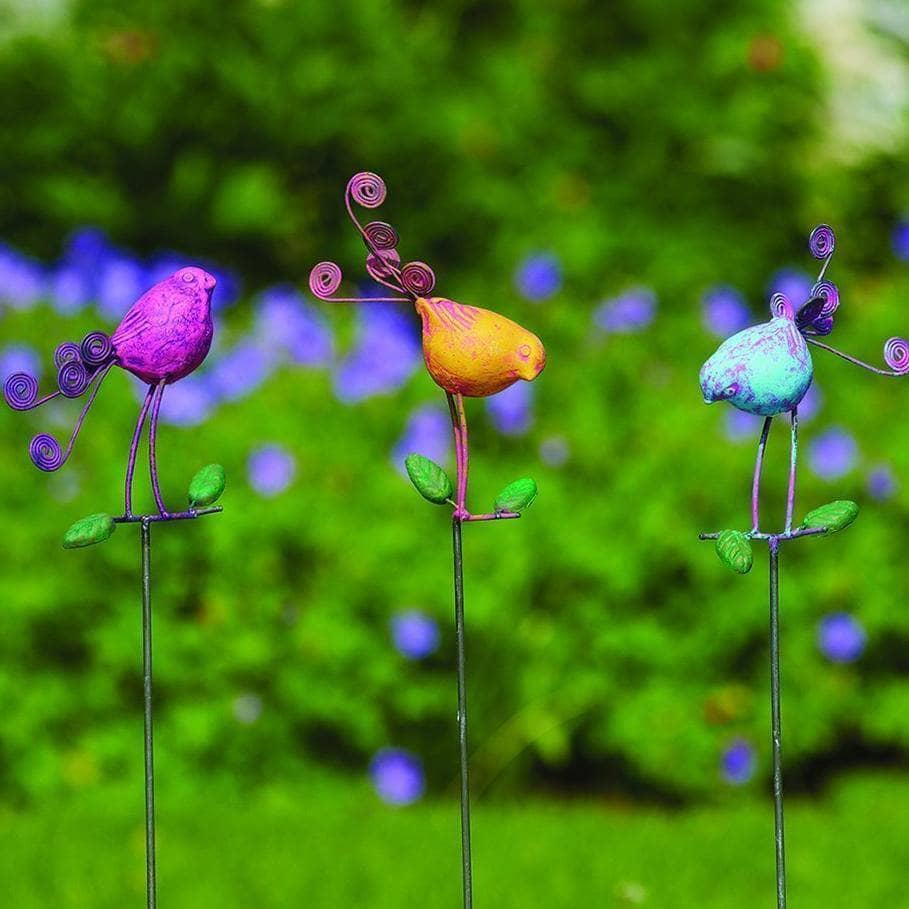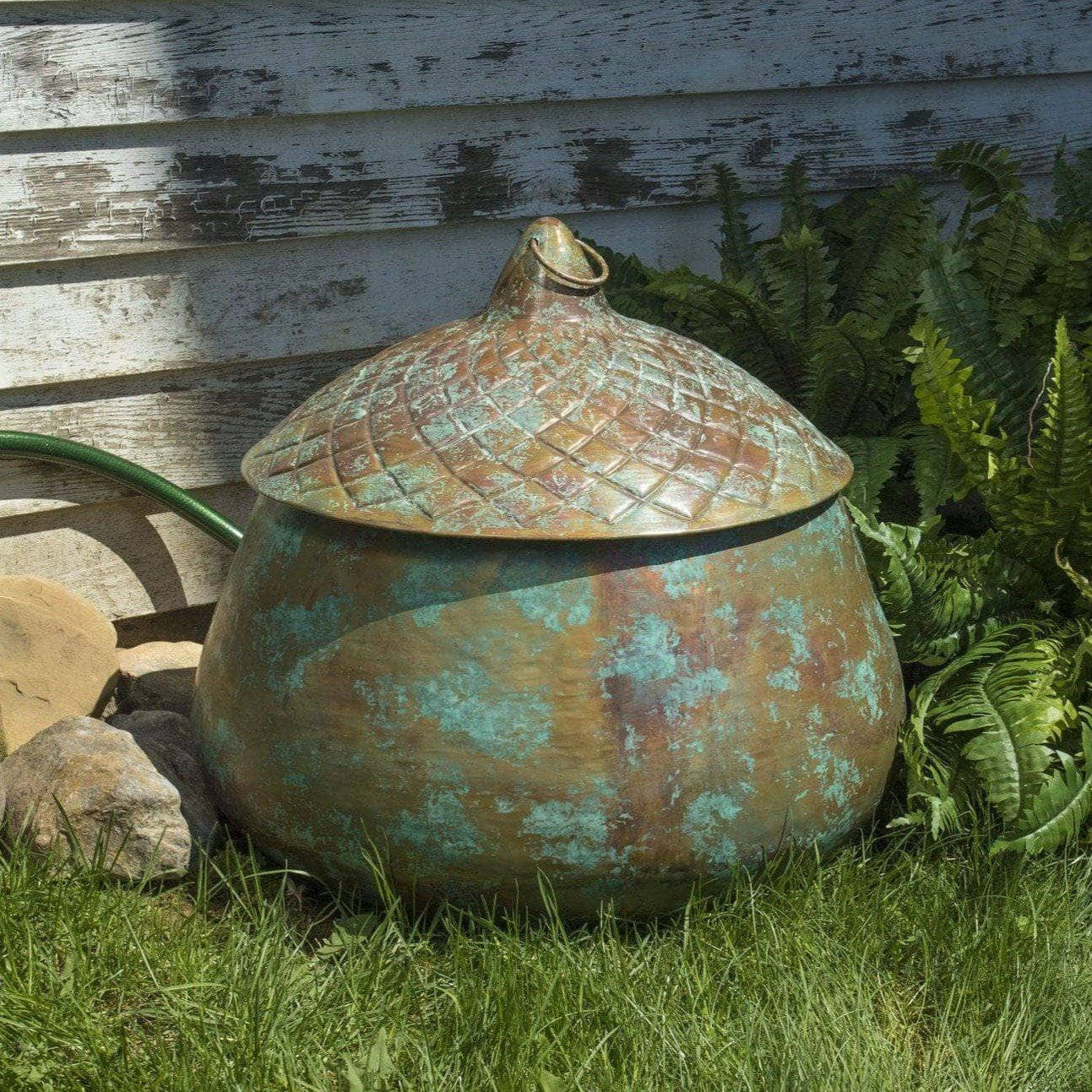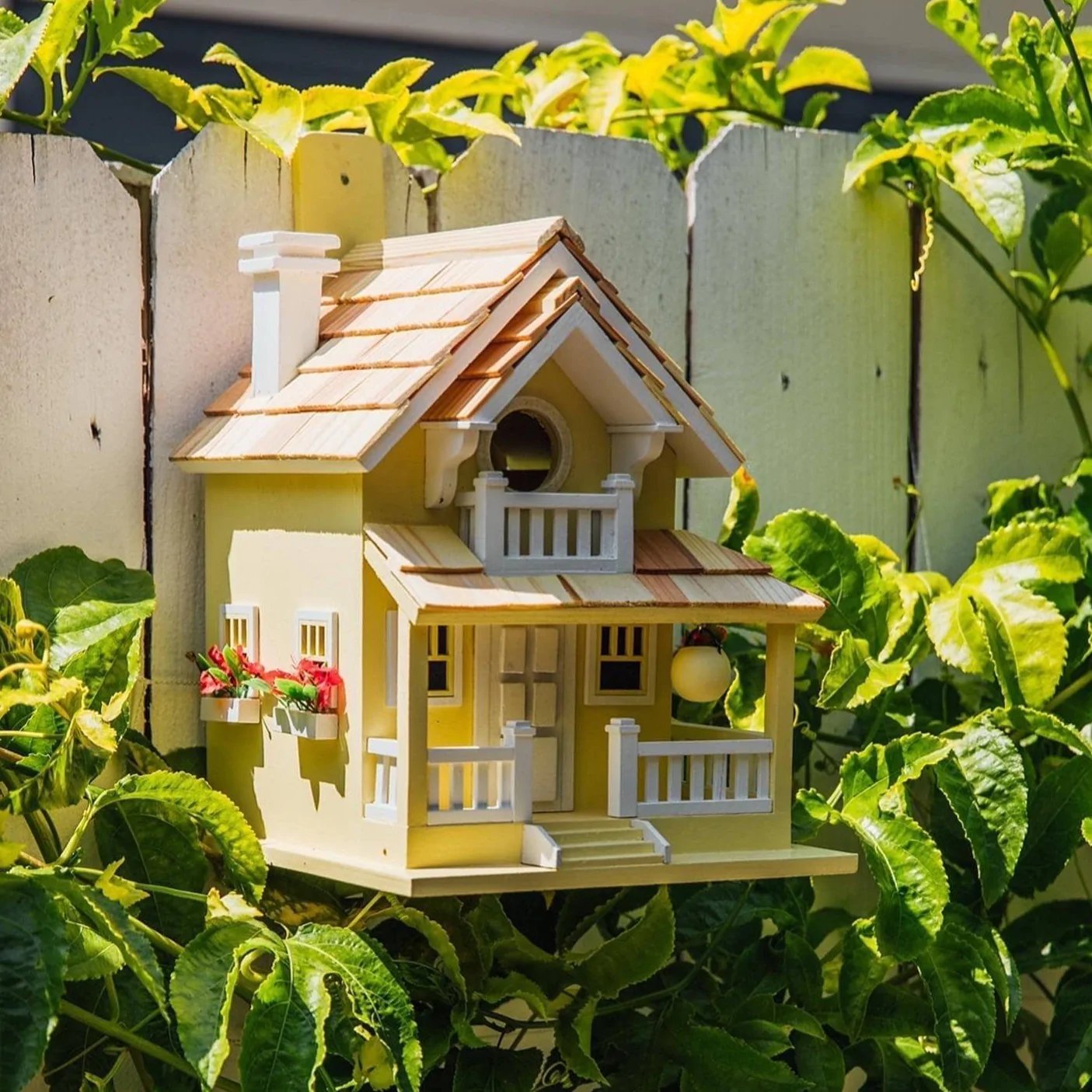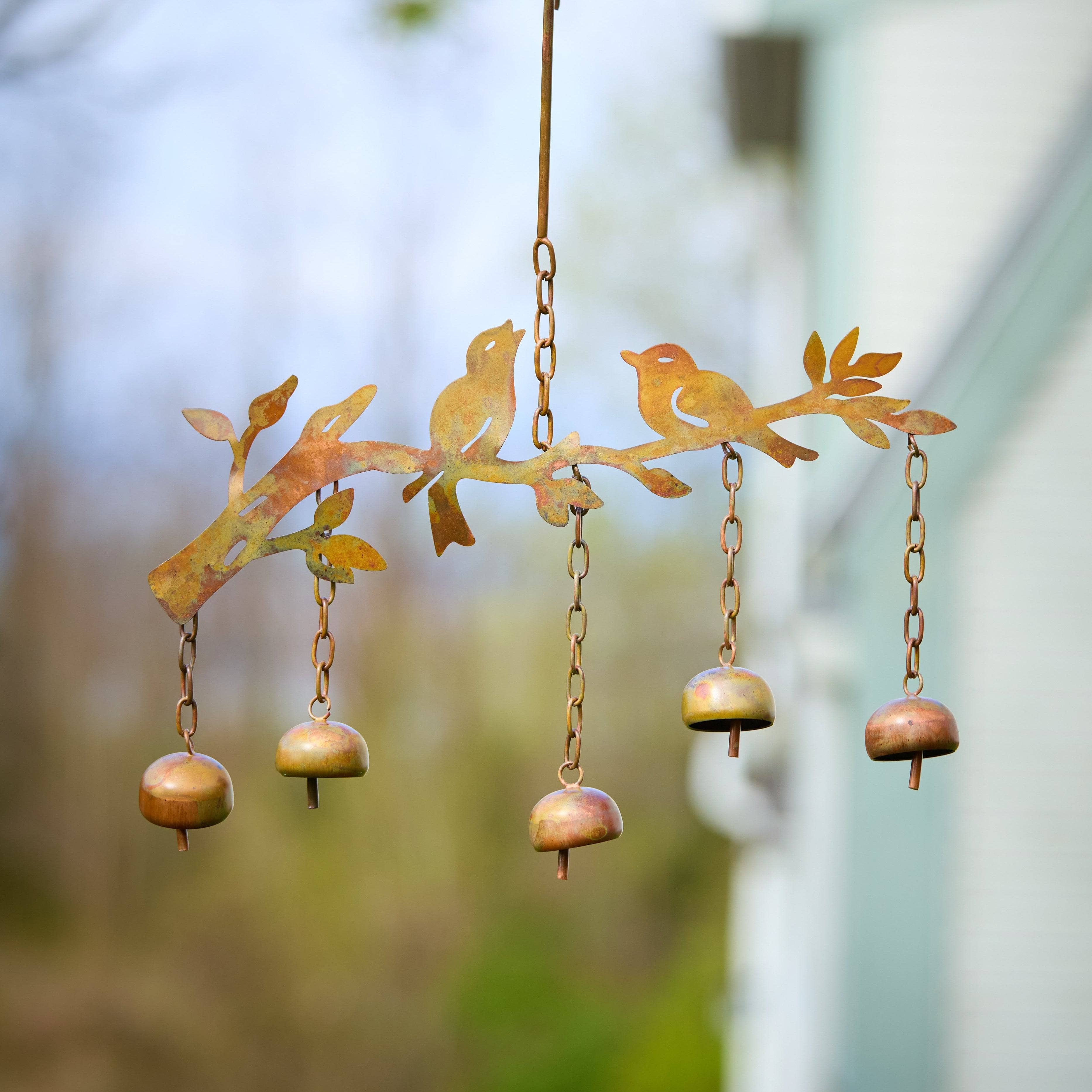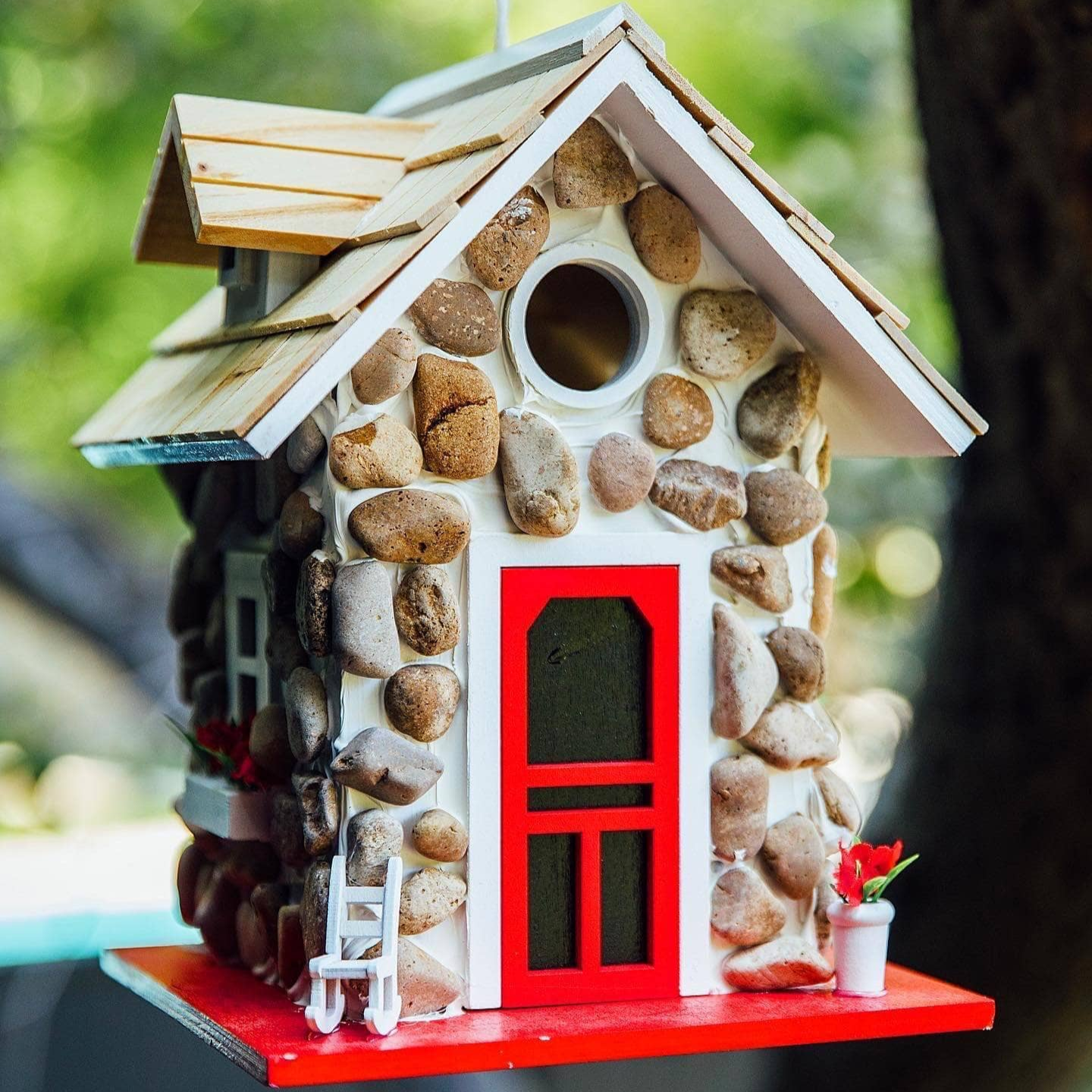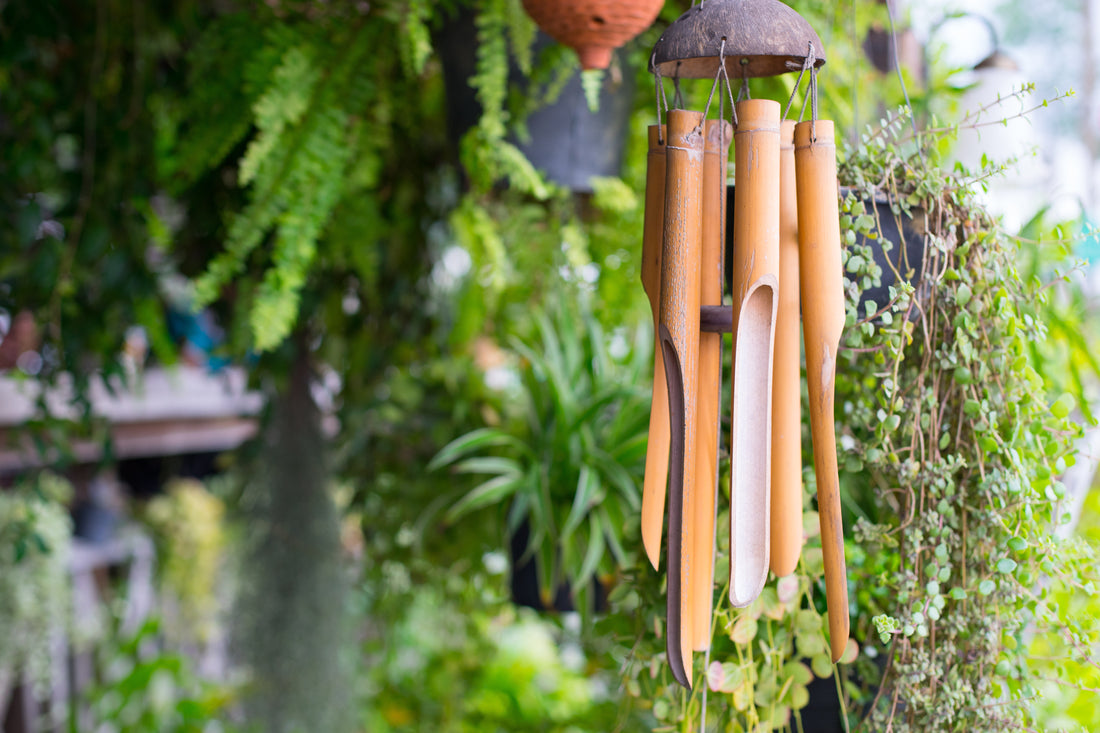
Care & Cleaning Of Metal Wind Chimes - Our Tips
Share
While windchimes are meant to withstand mother nature through most of the year, they are not built to be entirely indestructible, especially in extreme weather. For example, these ornate pieces can grow mold and algae over time with persistent wet weather during harsher months.
Even wind chimes made from natural and sustainable products will be susceptible to the natural aging process. To keep your chime looking as good as new, you'll need to provide added weather protection and other simple maintenance tips.
In this article, we'll cover everything you need to know about the proper care and cleaning of wind chimes.
What You'll Need
Before we get into the details of cleaning your wind chime, it's important to touch on some of the basic materials you'll need. Thankfully, cleaning a chime is not only relatively simple, but the primary materials you'll need to periodically clean your chime, which you likely already have at home.
Damp Cloth
One of the first materials you will need is a damp cloth or paper towel. You can use your cloth to occasionally wipe your chime without a heavy cleaning. Wood parts periodically need wiping more often than other materials, like powder coated tubes or other weather protected materials.
Any soft cloth will work well. What's important is that you use a clean cloth to wipe your chime down to help clean and protect it. A damp cloth is safe, even for everything from rust finish steel elements in metal chimes to bamboo chimes.
Mild Soap and Water
You'll also want a mild detergent and water when it comes to cleaning your wind chime. In some instances, you may be able to use a window cleaner, but you'll want to check and make sure it is safe with the materials of your wind chime first. If you're not sure, refer to our detailed list below.
Cleaning Your Wind Chime
Now, it's time to move on to cleaning your chime. Here, we'll detail the different materials and what to use to ensure you preserve your chime without damaging any piece of it.
How to Clean Metal Wind Chimes
Metal chimes will need special attention to avoid any rusting. Woodstock Chimes are popular options known as the original musical tuned chime. While Woodstock Chimes and other similar chimes are top of the line, even these require cleanings. To help preserve your Woodstock Chimes, you can follow the steps below. Remember that even Woodstock Chime will fall victim to environmental factors.
Aluminum Tubes
You don't have to worry about anodized aluminum chimes tubes rusting, thankfully. But, when placed outdoors, this material is prone to naturally pit. To restore its original shiny finish, you can use fine steel wool for wiped clean quality control. Many chimes are made of aluminum tubes, so follow these cleaning instructions if yours is, too.
Brass Parts
Any brass parts of your wind chime can be cleaned with a cleaner specifically designed to treat brass. Be careful that you keep this cleaner to brass only, though, as it can be an abrasive cleaner. Otherwise, you can opt to naturally age the brass as you please.
How to Clean Bamboo Wind Chimes
Bamboo occur in nature and is a popular chime material. While sometimes mistaken for wood, bamboo is a type of grass. Bamboo expands and contracts as it is extremely sensitive to sudden changes in temperature. Cracks in bamboo occur and are not out of the norm. Hairline cracks generally will not disrupt a bamboo chime or its sound.
Even the highest quality bamboo chime, such as Asli Arts bamboo chimes, is prone to build up, which is why you should use a damp cloth with mild soap to remove any. Varnish can also help to protect from build up in the future.
Other Materials
While metal and bamboo wind chimes are the most common, you'll find that you can find a wind chime with nearly any type of material, including coconut shell.
Crystal Accents and Rainbow Makers
Gently wipe crystals till they are shiny and clean, using a window cleaner and soft cloth.
Glass and Stone Accents
To clean glass and stone accents, use a damp cloth with mild soap and water if needed.
Powder-Coated Aluminum Tubes
Powder coated finish tubes will need cleaning with mild soap and water. Make sure to use a non abrasive cleanser and steel wool because it can damage the powder coated tubes.
Resin and Rust-Finish Pieces
Other materials like rust finish elements resin can be cleaned using a damp cloth.
Wood Parts
Most wood can handle humidity and sudden temperature changes better than bamboo chimes. Since bamboo expands and contracts, some people prefer to look for wood chimes instead to avoid larger cracks from extreme weather.
Lemon oil is a great way to help preserve the wood parts of any chime. Using a clean cloth, periodically apply a thin coat of the oil onto the wood to help slow the natural aging process of the wood. Regular oiling will help protect the wood from common environmental factors such as extreme heat, humidity and sudden temperature drops. Periodically apply a thin layer of lemon oil as a non abrasive cleanser and protector.
Protecting Your Chime
Long term direct sunlight can naturally age your chime much quicker than usual. While manufacturers produce chimes that can withstand the elements, things like sudden temperature changes are hard to account for.
Hanging It
You can help protect your chime by hanging it from a porch overhang or a shady tree. This approach will help minimize the number of heavy winds your chime is exposed to and direct sunlight and, therefore, larger cracks. We also have an article on how to string a chime.
Bring It Inside
Whenever you are expecting a big wind or rainstorm, it's a good idea to bring your chime indoors. To be extra cautious, you can even bring it indoors during the harsh winters, especially if you live in the north. If you do decide to bring it in for the winter, avoid placing it in your home, where your heater is likely to run. Instead, opt to put it in the garage, or your backyard shed.
Added Weather Protection
In the spring, you can apply a thin coat of varnish (to particular chime materials, based on our list above) to help protect your chime from the natural elements. Before adding any varnish, though, do make sure to clean it thoroughly first.
Oiling Wood Elements
Lastly, for any wood elements on your chime, remember that regular oiling will help protect the wood. While it might seem tedious, taking a few minutes between seasons can make a world of difference in the longevity of your chime.
See our complete wind chime FAW article.
Happy Gardens Collection of Wind Chimes
If you're looking for the whimsical wind chime of your dreams, check out the Happy Gardens collection. Consider some of the unique pieces from our top-rated collection, like this Cats with Bells wind chime, Scroll Hearts Multicolor Wind Chime, of Sun with Ball, and Dangles Wind Chime.
Don't be alarmed if you're having difficulty picking between so many great pieces. If you're wondering how you can pick the perfect wind chime to match your garden aesthetic or are looking for specific directions on how to clean your existing wind chime, try asking one of us via chat. After all, here at Happy Gardens, we're happy to help!
